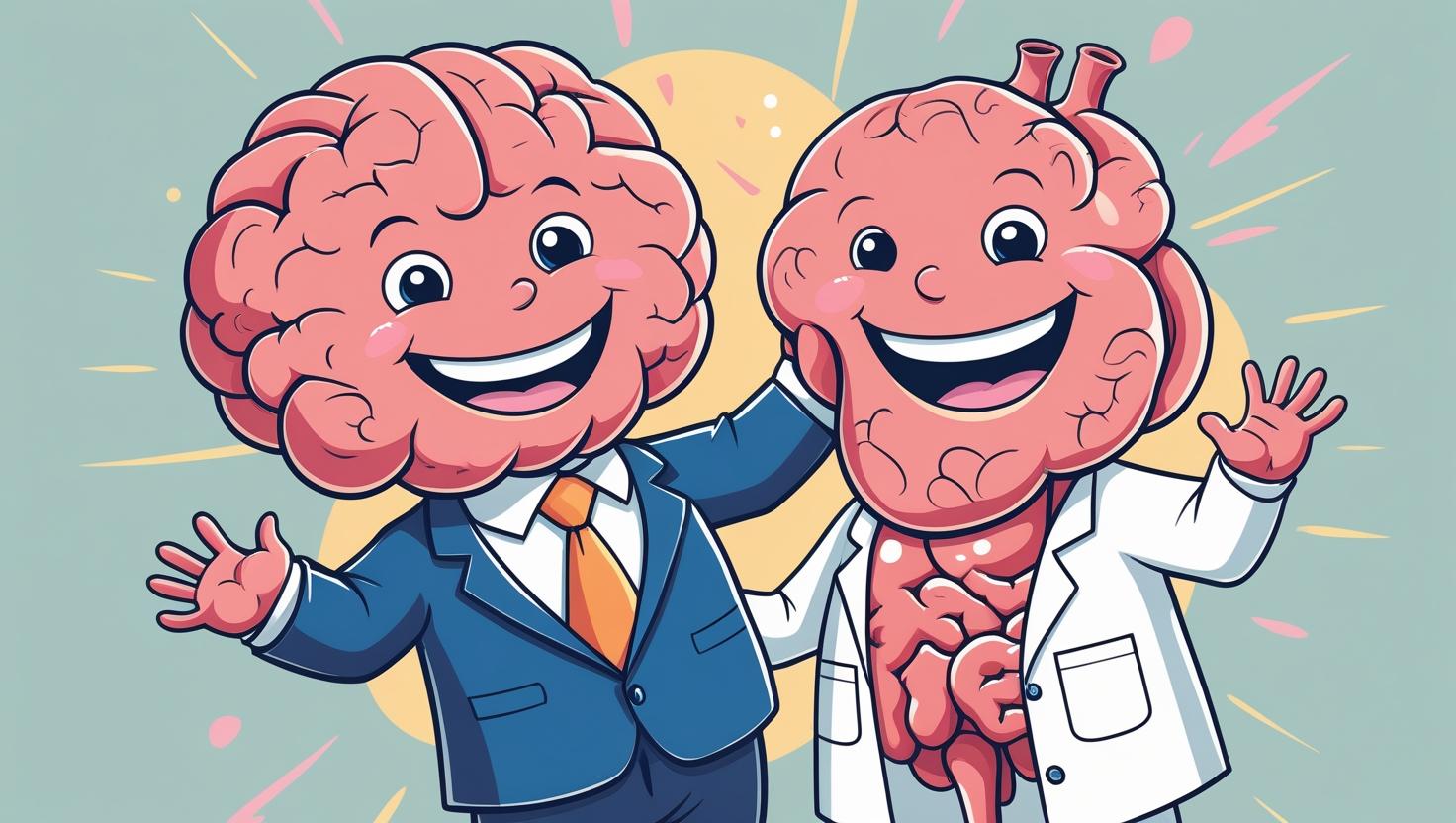
Listening to Your Gut: The Science of the “Second Brain”
 The
phrase
“listen
to
your
gut”
is
more
than
a
metaphor—it
reflects
an
important
biological
reality.
The
phrase
“listen
to
your
gut”
is
more
than
a
metaphor—it
reflects
an
important
biological
reality.
The connection between the gastrointestinal system and the brain is a rapidly growing area of scientific research. Known as the gut-brain axis, this communication pathway influences not only digestion but also mood, cognition, and overall health. In fact, an entire episode of the Brain Lady Speaks podcast, “Your Gut Health and Mood,” explores the latest findings on this topic—covering how neurotransmitters are produced in the gut, how stress disrupts gut microbiota, and why nutrition and probiotics can play a crucial role in maintaining balance.
The Gut as the “Second Brain”
 The
gut
is
home
to
an
intricate
network
of
over
100
million
neurons—more
than
the
spinal
cord—collectively
known
as
the
enteric
nervous
system
(ENS).
This
network
operates
semi-independently
yet
maintains
constant
communication
with
the
central
nervous
system
through
a
two-way
signaling
system.
The
gut
is
home
to
an
intricate
network
of
over
100
million
neurons—more
than
the
spinal
cord—collectively
known
as
the
enteric
nervous
system
(ENS).
This
network
operates
semi-independently
yet
maintains
constant
communication
with
the
central
nervous
system
through
a
two-way
signaling
system.
While the ENS is best known for regulating digestion, it also plays a role in emotional and cognitive processes. Everyday experiences illustrate this connection: butterflies before a presentation, appetite loss during stressful periods, or a sense of unease when something feels “off” are all manifestations of gut-brain interaction.
Serotonin Production in the Gut
One of the most striking discoveries in this field is that the gut produces 90–95% of the body’s serotonin—a neurotransmitter critical for both mood regulation and gastrointestinal function. Although most serotonin remains in the digestive tract, its production is closely linked to emotional well-being through the gut-brain communication pathway.
When the gut’s health is compromised, serotonin production can be disrupted, potentially contributing to mood disorders such as anxiety or depression.
Stress and the Gut Microbiota
Chronic stress can alter the composition of the gut microbiota—the community of beneficial and harmful microorganisms living in the digestive tract. An imbalance, favoring harmful bacteria, may trigger:
- Inflammation of the gut lining
- Digestive discomfort or irregularities
- Impaired neurotransmitter production
- Increased vulnerability to mood disturbances
This creates a self-perpetuating cycle in which stress impairs gut health, and poor gut health exacerbates stress and emotional distress.
Supporting Gut Health for Mental and Physical Well-being
 Research
suggests
several
evidence-based
strategies
to
promote
a
healthier
gut-brain
connection:
Research
suggests
several
evidence-based
strategies
to
promote
a
healthier
gut-brain
connection:
- Adopt a nutrient-rich, gut-supportive diet including high-fiber plant foods, lean proteins, and fermented products such as yogurt, kefir, sauerkraut, or kimchi.
- Incorporate stress-reduction practices such as mindfulness meditation, deep breathing, or regular physical activity.
- Consider probiotics and prebiotics under the guidance of a qualified healthcare professional to help restore microbial balance.
When the gut functions optimally, it is better equipped to produce neurotransmitters, regulate inflammation, and support both physical and emotional resilience.
By understanding and nurturing the “second brain,” you can positively influence not only your digestive health but also your mood, focus, and overall quality of life. Listening to your gut—both figuratively and literally—might be one of the most important health decisions you make.
-Julie "Brain Lady" Anderson
